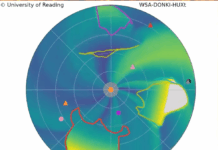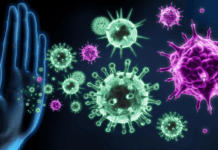
Researchers have concluded that organic farming can sustainably feed the global population.
Through the review of hundreds of published studies, Washington State University researchers have found evidence that organic farming can produce sufficient yields, be profitable for farmers, protect and improve the environment and be safer for farm workers.
Written by John Reganold, WSU regents professor of soil science and agroecology and doctoral candidate Jonathan Watcherhe, the review study, “Organic Agriculture in the 21st Century”, is featured as the cover story for February issue of the journal Nature Plants. It is the first study of its kind to analyze 40 years of science that compares organic and conventional agriculture across the four goals of sustainability identified by the National Academy of Sciences which are productivity, economics, environment, and community well being.
There are hundreds of scientific studies that now show how big of a role organic agriculture can can and should play in feeding the world. Thirty years ago, there were only a few studies comparing organic agriculture to conventional agriculture. These kinds of studies have skyrocketed in the last 15 years. Yet, organic production currently accounts for only 1% of global agricultural land, despite its growth in the last 20 years.
People who are against organic farming have long argued that organic agriculture is inefficient, requiring more land to yield the same amount of food. The review gives examples of cases where organic yields can be higher than conventional farming methods.
Since organically farmed soil has a higher water-holding potential, severe droughts, which are expected to increase with climate change, will not have as bad of an affect on them. This means that organic farms will have the ability produce higher yields than conventional farms.
Many studies in the review prove the environmental benefits of organic production. Organic farms have the ability to store more soil carbon, have better soil quality, and reduce soil erosion. Organic agriculture also creates less soil and water pollution and releases lower greenhouse gas emissions. Organic farms are also more energy efficient because they do not rely on synthetic fertilizers or pesticides. They are also associated with greater biodiversity of plants animals insects and microbes. This biodiversity increases the services that nature provides such as pollination. It also improves the ability of farming systems to adapt to changing conditions.
Reganold says that if we were to look at calorie production per capita, we would see that we are producing more than enough food for 7 billion people now, but we waste 30% to 40%. We must make agriculture environmentally friendly and make sure that food gets to those who need it.
Reganold and Wachter suggest that a balance of innovative farming systems such as agroforestry, integrated farming, and conservation agriculture are needed to sustainably feed the world.
Reganold and Wachter recommend that policy changes should be set in place to address the barriers that hinder the expansion of organic agriculture. Some of these barriers that hinder the expansion of organic agriculture are hurdles and costs of transitioning to a organic certification, lack of access to labor markets, and lack of appropriate infrastructure for storing and transporting food. Legal and financial tools are necessary to help encourage the spread of sustainable farming practices that will help direct the world towards a healthier and more sustainable future.
by ARIANA MARISOL
Source(s):
Disclaimer: We at Prepare for Change (PFC) bring you information that is not offered by the mainstream news, and therefore may seem controversial. The opinions, views, statements, and/or information we present are not necessarily promoted, endorsed, espoused, or agreed to by Prepare for Change, its leadership Council, members, those who work with PFC, or those who read its content. However, they are hopefully provocative. Please use discernment! Use logical thinking, your own intuition and your own connection with Source, Spirit and Natural Laws to help you determine what is true and what is not. By sharing information and seeding dialogue, it is our goal to raise consciousness and awareness of higher truths to free us from enslavement of the matrix in this material realm.
Português
 EN
EN FR
FR

























